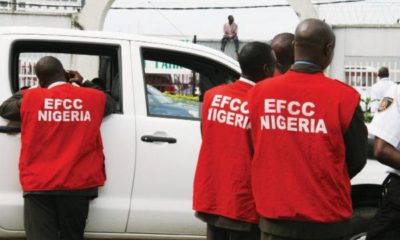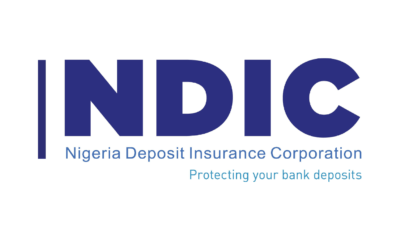The Economic and Financial Crimes Commission (EFCC) is tasked with the investigation of all financial crimes, but declaring Ibrahim Ibitade, the CEO of Leatherback wanted, feels like a rather strange route to take in its quest to ensure it stays true to its course.
Despite the company’s cooperation in an ongoing fraud investigation, the Agency went ahead to declare Ibitade wanted on Thursday afternoon via Instagram. The post stated that the 31-year-old is wanted in connection with allegations of conspiracy and obtaining money under pretense.
The Leatherback CEO has reacted to the wanted notice by refuting claims that he is in hiding and questioning the agency’s conduct. In his words, “If a commercial bank in Nigeria issues an account to an individual or a business and that business goes to defraud other people, will you declare the CEO of the commercial bank wanted?”
Ibitade’s company is a digital bank that issues accounts in Dollars, Pounds, and about 14 other currencies, helping merchants and individuals facilitate cross-border banking and payment needs in several countries.
He revealed that Leatherback has consistently cooperated with the EFCC, attending every meeting with the EFCC team. The company had been duly represented by its head of compliance in the Lagos and Abuja offices of the EFCC. According to him, the team has spent 35 of the last 60 days at the EFCC office, addressing all inquiries that have been raised.
Leatherback has actively supported the EFCC investigation by providing over 2,000 printed documents for extensive clarification. In addition to the cooperation with the Agency, Leatherback launched an internal investigation and took proactive steps by filing a Suspicious Activity Report (SAR) in both the UK and Nigeria.
In spite of Leatherback’s continuous willingness to cooperate and prove its innocence in the face of these fraud allegations, EFCC has continued to come after the company and CEO.
But how did we get here?
The EFCC began investigating fraud allegations a few months ago involving SDQ Facilitators, an account holder with Leatherback, with no special relationship beyond regular account services provision.
Leatherback, which currently has over 50,000 users across its 12 countries of operations, issued an NGN and USD account to a user called SDQ Facilitators. The account exchanged Naira deposited in their account for USD, which they could then initiate a payout to the final beneficiary from their USD account.
In September 2023, Leatherback was notified by the EFCC that the account maintained by SDQ facilitators had been used to possibly perpetuate fraudulent activities. Leatherback immediately started providing the authorities with all the required information to aid their investigation.
The company’s findings show that SDQ Facilitators began processing a significantly high volume of transactions from May to August. SDQ Facilitators’ transactions were found to closely mirror those processed by Hekima International, a previous account holder onboarded onto Leatherback in the latter part of 2022. This suggests that Hekima may have redirected some of its clients to SDQ Facilitators.
The internal investigation turned up a few victims who revealed that they were introduced to SDQ Facilitators by a Hekima associate when they were unable to process their transactions on the platform.
Leatherback delisted Hekima International in June 2023 from its platform and restricted account access due to risk and compliance concerns. This decision was prompted by Hekima International receiving third-party USD funds from a flagged sender in the USA.
SDQ Facilitators took over from Hekima with Fx transactions until early August, when Leatherback received a notification from its bank that it had suspended all USD transactions for about two weeks. This interruption exposed the fraudulent practices of SDQ Facilitators, who had been utilizing client funds for other transactions while awaiting new funds.
Leatherback inundated with requests from clients unknown to them, sought to confirm the status of transactions completed through SDQ Facilitators. In the subsequent weeks, it became evident that SDQ Facilitators had fraudulently collected funds from third parties, unknown to Leatherback, under the guise of assisting with settling USD payments.
Following the EFCC investigations and clarification efforts by Leatherback, an internal investigation uncovered the following facts:
- Almost all of Hekima’s transactions shifted to SDQ facilitators after Hekima’s account was delisted.
- Victims confirmed that Hekima’s associate, Olugboyega Agbede, introduced them to SDQ Facilitators after Hekima could no longer assist with processing their transactions.
- Ade Mosuro, a non-executive director at Hekima International, introduced victims to SDQ Facilitators after confirming they could no longer process transactions through Hekima International.
- Victims, including Al-Pasie and Nolt Finance, were introduced to SDQ facilitators by both Ade Mosuro and Olugboyega Agbede.
- These victims were among the most active trading clients with Hekima when it had an active account with Leatherback.
These findings prove that Leatherback had no direct involvement with SDQ Financials and was unaware of the account holder’s fraudulent transactions. The investigation continues to unravel intricate connections and patterns associated with this complex financial situation.
It is important to note that it feels like a futile effort to declare the head of a company that has so far been very cooperative when in fact the real perpetrators of the crime walk free. Leatherback remains unfazed amidst the ongoing controversy and is committed to clearing its good name.

 Forex3 weeks ago
Forex3 weeks ago
 Naira3 weeks ago
Naira3 weeks ago
 Billionaire Watch3 weeks ago
Billionaire Watch3 weeks ago



 Naira3 weeks ago
Naira3 weeks ago






 Naira3 weeks ago
Naira3 weeks ago




 Naira2 weeks ago
Naira2 weeks ago




 Naira4 weeks ago
Naira4 weeks ago






 Naira2 weeks ago
Naira2 weeks ago























